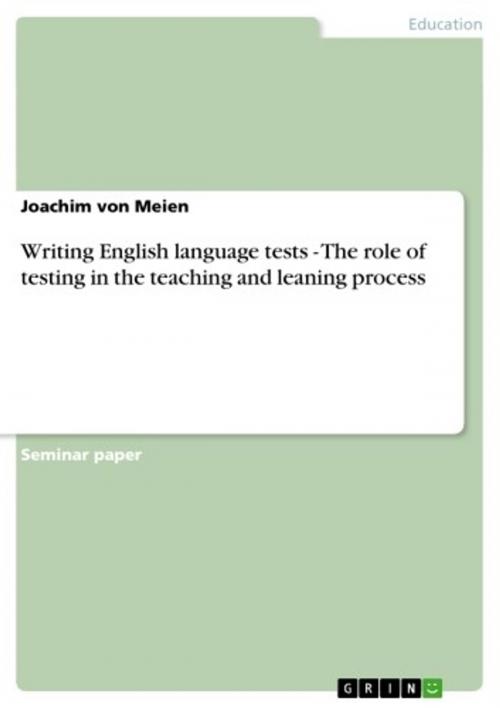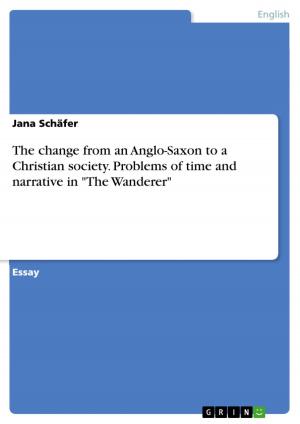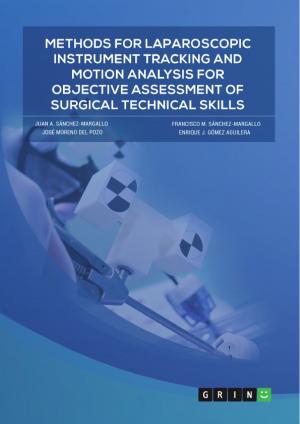Writing English language tests - The role of testing in the teaching and leaning process
The role of testing in the teaching and leaning process
Nonfiction, Reference & Language, Study Aids, ESL, Foreign Languages| Author: | Joachim von Meien | ISBN: | 9783638340762 |
| Publisher: | GRIN Publishing | Publication: | January 19, 2005 |
| Imprint: | GRIN Publishing | Language: | English |
| Author: | Joachim von Meien |
| ISBN: | 9783638340762 |
| Publisher: | GRIN Publishing |
| Publication: | January 19, 2005 |
| Imprint: | GRIN Publishing |
| Language: | English |
Seminar paper from the year 2004 in the subject English - Pedagogy, Didactics, Literature Studies, grade: 2 (B), Otto-von-Guericke-University Magdeburg, 11 entries in the bibliography, language: English, abstract: Writing English language tests is a topic very many students and of course also their teachers have to deal with. Often testing does not have a very good reputation, especially when regarding the students. Most of them are probably happy when a test is over and enjoy the time without them. But testing has much more functions than a superficial look at it will provide. Chapter 3.1 of this paper deals with the numerous purposes and is also supposed to show the important role that testing plays in the teaching process. This paper will concentrate on the writing skill and the evaluation of it. The other three skills reading, listening and speaking are not the centre of research. But it is not possible to exclude them because they are all interrelated to the writing skill as this paper wants to show. What is it that makes especially the writing skill and also the testing of it so sophisticating and complex? Writing at an advanced level is usually compositional writing or essay writing. Chapter 2.3 concentrates on that kind of writing and points out its often difficult prerequisites, even for writers in the native language. What are the necessary features of tests in general? It is supposed to become clear that certain conditions such as validity, reliability and practicality are extremely important for written assessment and for every other assessment too. Many people, even if they never actively scored a test, are able to imagine the difficulties of a fair and objective judgement. Especially when dealing with compositional writing, that assumption is true. But nevertheless there are ways to improve the objectivity of evaluation even if a rest of subjectivity can not be avoided. Chapter 3.5 focuses on ways to judge tests adequately. Writing English language tests is a wide topic. It is not possible to cover all the separate areas that exist. Especially the description of compositional writing could have gone more into detail. But at some points a concentration on main areas was necessary in order not to exceed the frame of the paper.
Seminar paper from the year 2004 in the subject English - Pedagogy, Didactics, Literature Studies, grade: 2 (B), Otto-von-Guericke-University Magdeburg, 11 entries in the bibliography, language: English, abstract: Writing English language tests is a topic very many students and of course also their teachers have to deal with. Often testing does not have a very good reputation, especially when regarding the students. Most of them are probably happy when a test is over and enjoy the time without them. But testing has much more functions than a superficial look at it will provide. Chapter 3.1 of this paper deals with the numerous purposes and is also supposed to show the important role that testing plays in the teaching process. This paper will concentrate on the writing skill and the evaluation of it. The other three skills reading, listening and speaking are not the centre of research. But it is not possible to exclude them because they are all interrelated to the writing skill as this paper wants to show. What is it that makes especially the writing skill and also the testing of it so sophisticating and complex? Writing at an advanced level is usually compositional writing or essay writing. Chapter 2.3 concentrates on that kind of writing and points out its often difficult prerequisites, even for writers in the native language. What are the necessary features of tests in general? It is supposed to become clear that certain conditions such as validity, reliability and practicality are extremely important for written assessment and for every other assessment too. Many people, even if they never actively scored a test, are able to imagine the difficulties of a fair and objective judgement. Especially when dealing with compositional writing, that assumption is true. But nevertheless there are ways to improve the objectivity of evaluation even if a rest of subjectivity can not be avoided. Chapter 3.5 focuses on ways to judge tests adequately. Writing English language tests is a wide topic. It is not possible to cover all the separate areas that exist. Especially the description of compositional writing could have gone more into detail. But at some points a concentration on main areas was necessary in order not to exceed the frame of the paper.















